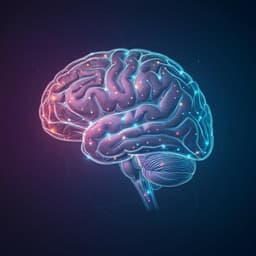
Psychology
Crisis of objectivity: using a personalized network model to understand maladaptive sensemaking in a patient with psychotic, affective, and obsessive-compulsive symptoms
A. Oblak, M. Kuclar, et al.
Explore a captivating case study of Hernan, a 27-year-old man with schizoaffective disorder and obsessive-compulsive symptoms. This research, conducted by Aleš Oblak, Matic Kuclar, Katja Horvat Golob, Alina Holnthaner, Urška Battelino, Borut Škodlar, and Jurij Bon, uncovers the profound 'crisis of objectivity' theme central to his experience, utilizing groundbreaking personalized network models and qualitative methods.
Related Publications
Explore these studies to deepen your understanding of the subject.







